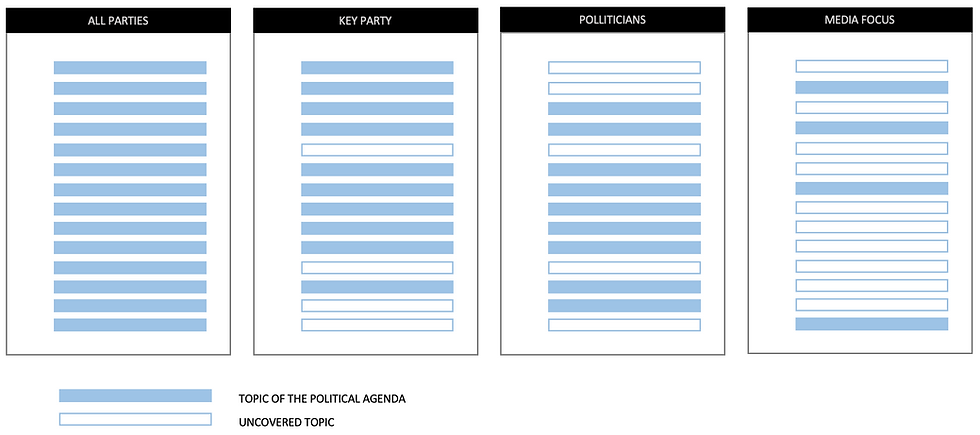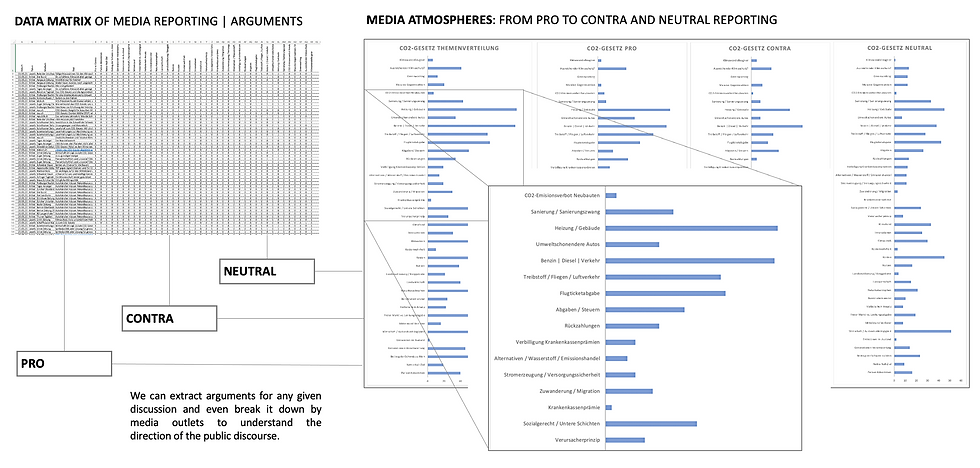Political Analysis with Semantic Analysis
- Editorial Team

- Nov 20, 2024
- 2 min read
Updated: Feb 12, 2025
We analyze the topic agenda, stakeholders and the treatment of topics in the media. From lobbying structures to centrally important topics, we cover the spectrum of relevant policy analysis.

Political Communication
All parties together form the political communications landscape. If you take party programs as a basis, you get the entire range of topics that are covered. The focus of the parties may vary. Some focus on topics that others do not have on their agenda. This also applies to the respective politicians, who probably stay within the framework of the party programs, but do not have to, and who nevertheless set their own priorities.
We therefore measure the differences between political actors. This makes it possible to identify differences between parties or politicians. This can then be an intra-party or cross-party comparison. It is therefore about questions such as these:
How do politicians distinguish themselves in comparison within their own parties?
Who scores with which focus areas and how important are the topics for the media?
How do the parties differentiate themselves from each other?
At the end, of course, we look at what is actually taken up by the media in the discourse space of society and with what emphasis. But knowing the topics alone is not enough. Differentiation in terms of content is also crucial.
Argument analysis vs. sentiment analysis

The agenda alone is only part of the analysis. Topics such as " migration ", which are currently being discussed very intensively, can only be made comparable in terms of content through argument analysis. Therefore, depending on your question, we also use argument analysis. This has nothing to do with sentiment. Sentiment analysis is too prone to errors to achieve a meaningfulness that needs to be taken into account. The comparison at the argument level is much more important when it comes to seeing whether the arguments are pro, con or neutral.
Semantic analysis helps to identify and compare narratives, making it the best method for political analysis that really wants to go into depth.
For a deeper look into political environments: Semantic analysis.
Interested in learning more?



